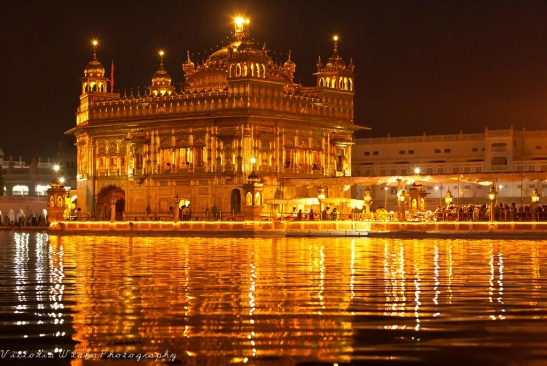SACRILEGE IN SIKHISM

Disclaimer: Copyright infringement not intended.
Context
- The lynching of the youth for allegedly trying to desecrate the Guru Granth Sahib has ignited what has been a long-simmering controversy around Sacrilege in Sikhism.
About
- ‘Beadbi’ or 'sacrilege' means being disrespectful towards Guru Granth Sahib Ji.
- The concept of sacrilege in Sikhism emanates largely from the fact that Sikhs consider the Guru Granth Sahib to be a living Guru.
- The Sikhs consider the Guru Granth Sahib and everything associated with it as highly sacred. These include:
the ‘dastaar’ or the ‘pagri’, the headgear worn by Sikhs, is also considered sacred, as is the ‘kirpan‘, the sword that baptised Sikhs carry.
- The hair and beard maintained by Sikhs are also sacred, and touching or disrespecting these also amounts to sacrilege.
- In Sikhism, the Guru is considered to be a living entity, hence any harm or disrespect to the guru is treated as a serious offence.
- An alteration of Sikh religious traditions and practices, or a distortion of the history of the Gurus, is also sacrilege.
Incidents of sacrilege in India
- In India, for some years now, Punjab has topped the country in the number of sacrilege cases.
- Data from the National Crime Records Bureau (NCRB) shows that from 2018 to 2020, Punjab’s rate of crimes (number of cases divided by population in lakhs) registered under Sections 295 to 297 of the Indian Penal Code (IPC), which deal with sacrilege, was the highest.
Laws around it
- For all incidents of sacrilege in Punjab, police invoke Sections 295 and 295A of the IPC.
- The punishment is two years’ imprisonment in the case of Section 295, which involves destruction, damage to or defiling of a “place of worship”, or “any object held sacred”.
- Section 295A provides for three years of imprisonment for the “deliberate and malicious intention of outraging the religious feelings of any class of citizens”.
Amendments
- In the wake of criticism for the sacrilege incidents of 2015, the then Akali-BJP government passed a bill in the state assembly that amended the IPC.
- This amendment added Section 295AA, which would invite life imprisonment for sacrilege of the Guru Granth Sahib.
- But the bill did not receive the assent of the President, and was returned by the Union Home Ministry on the grounds that it was against the secular spirit of the Constitution of India.
- In 2018, when Captain Amarinder Singh was chief minister, the amendment was again passed by the assembly, and it covered holy books of all religions, to tide over the objection raised by the home ministry.
- The amendments led to the insertion of Section 295AA (Punjab-specific) into the IPC saying “whoever causes injury, damage or sacrilege to Sri Guru Granth Sahib, Srimad Bhagwad Geeta, Holy Quran and Holy Bible with the intention to hurt the religious feelings of the people, shall be punished with imprisonment for life”.
- The amendment also increased the punishment for “injuring or defiling [a] place of worship with [the] intent to insult the religion of any class” from imprisonment of two years to 10 years.
- These Bills were given assent by the Punjab Governor. However, these Bills are pending for the assent of the President since October 2018.
Blasphemy and laws around the world
- To blaspheme is 'to show contempt or disrespect for (God or sacred things)'. 71 of the world's 195 countries have blasphemy laws. Penalties for violating blasphemy laws in these countries can range from fines to imprisonment and death.
- A 2017 report by the US Commission on International Religious Freedom (CIRF) identified 71 countries that criminalise views deemed to be blasphemous. The punishments for these transgressions vary from fines to the death penalty, but the vast majority of countries (86%) that enforce blasphemy laws prescribe imprisonment for convicted offenders.
- Blasphemy is punishable by death in Iran, Pakistan, Afghanistan, Brunei, Mauritania and Saudi Arabia and some African nations.
- Among non-Muslim-majority cases, the harshest blasphemy laws are in Italy, where the maximum penalty is three years in prison.
Way Ahead
- Punjab being a border State, it is extremely necessary to maintain communal harmony here.
- For this, deterrent punishment is a must for those trying to disturb communal harmony by indulging in sacrileges.
https://epaper.thehindu.com/Home/ShareArticle?OrgId=GT19AHRO9.1&imageview=0



1.png)
